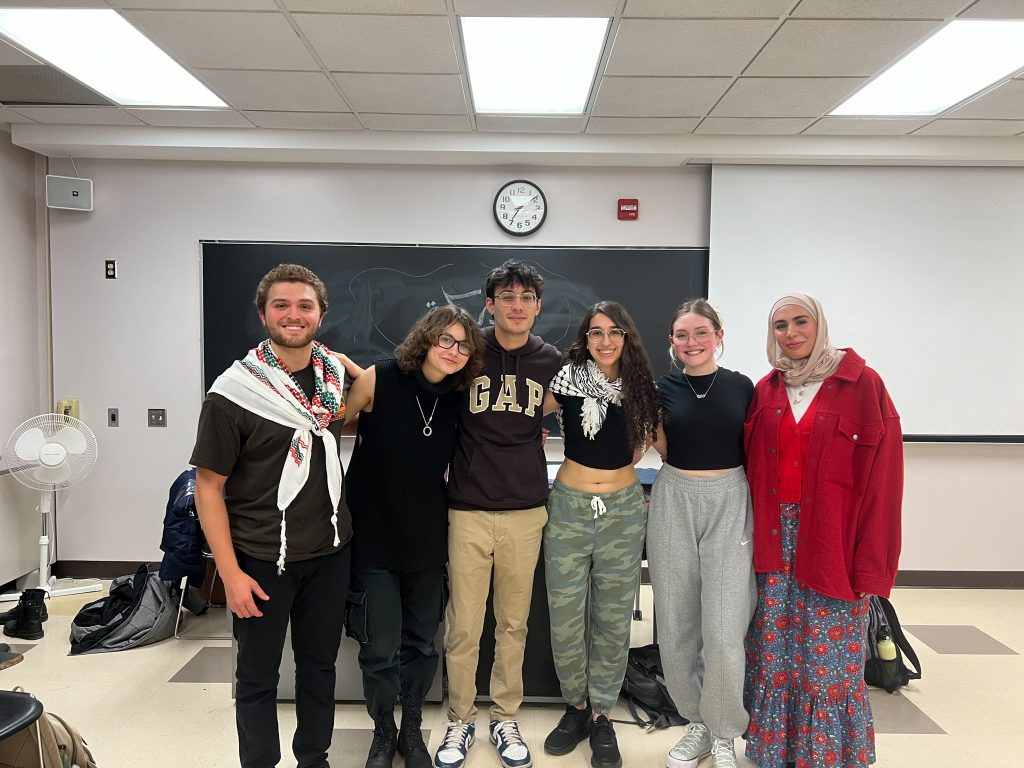This September, a group of students founded the Arab Student Association (ASA), a new organization dedicated to fostering unity, awareness and appreciation of Arab cultures on campus.
Through Arabic language, music, dance, history and culinary events and workshops, the ASA seeks to unite and organize Arab students, who previously lacked a formal, organized community. Due to the number of regions influenced by Arab culture, a united community of students that reflected its cultural diversity was needed, according to Adel Hamdi, ASA’s president and a senior majoring in computer science. He added that Georges Karam, the association’s founding president and a sophomore majoring in electrical engineering, was instrumental in the beginning stages of the process.
Hamdi expanded on ASA’s organizational values and goals.
“One value we would like to maintain as a staple of this association is hospitality,” Hamdi wrote in an email. “We would like to extend a warm invitation to all, no matter their background and make our guests feel welcomed with positive attitudes and refreshments. We also emphasize values of kinship, humility, diversity, solidarity, secularity and apoliticism, as we realize all of these are important to maintaining a healthy club atmosphere.”
He added that the group is in the process of creating a musical arts faction, which would perform Arabic folk and pop music at events.
Since its founding, ASA has hosted several cultural events, including “Shai and Shedeh,” a de-stress tea and card game night, and “Dabke Night,” which celebrated Dabke, a line dance native to Palestine, Iraq, Jordan, Lebanon and Syria.
Karam described the importance of having a dedicated space for Arab students on campus.
“As a Lebanese student at [Binghamton University], I was surprised to learn that Arab students had no resources on campus to meet or communicate,” Karam wrote. “It was clear to me that the University needed a proper organization where Arab students could congregate and make their voices heard. A need [became] painfully obvious in the advent of the events [unfolding] over the past two months, leaving the Arab community faced with unparalleled challenges and hardships.”
He added that he feels the organization is a beacon to Middle Eastern students at the University, bringing recognition to the students from the Arab diaspora.
Deen Kaakour, the vice president of ASA and sophomore majoring in biomedical engineering, shared the organization’s plans.
“We want to [have] events like movie showings, cooking, game [nights] and sharing Arabic poetry,” Kaakour wrote in an email. “We also want to start posting an Arabic word of the week on our Instagram. We hope to collaborate with other cultural organizations on campus to share and appreciate each other’s cultures.”
ASA also plans to hold an end-of-semester potluck with Students for Justice in Palestine (SJP) and the University’s Center for Middle East and North Africa Studies (CMENAS), as well as a game night with the Bangali Student Association.
“We want to create a place where all students, not just Arab students, can come together to experience and share our culture while having fun,” Kaakour wrote.



